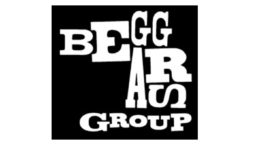Now this is how you run a successful music business.
UK independent powerhouse Beggars Group saw total operating profits jump 229.2% to £16.68m in 2015 – the year that Adele‘s 25 became one of the fastest-selling albums in history.
Although 25 was only released on November 20, it sold more than 10m units across the UK and US alone by the close of the calendar year.
That had a major impact on Beggars’ revenues, which jumped 73.6% to £72.94m in 2015, according to a new Companies House filing, up from £42.01m the year before.
£46.26m (or 63.4%) of this turnover figure was contributed by Beggars’ joint ventures.
(For context, Beggars’ huge year of 2011 – when Adele’s 21 was released in Q1 – saw the firm turn over £86.2m in revenue with an operating profit of £23m.)
From a business standpoint, here’s what’s particularly impressive about 2015’s numbers: despite dramatic rises in profit and revenue, Beggars Group Ltd. actually spent less on cost of sales in 2015 than it did the year before – £8.7m in 2015 vs. £10.22m in 2014.
This level of fiscal discipline resulted in an operating profit margin last year of 22.9%, up on the 12.1% equivalent margin recorded in 2014.
Compare that to the 2015 profit margin of Sony Music Entertainment (operating profit – 9.6%), Warner Music Group (OIBDA – 15.9%) and Universal Music Group (EBITA – 7.6%).
Conclusion: Beggars is a very smartly run enterprise.
The company’s post-tax profit in the year stood at £13.21m, with no dividends paid out to shareholders.
Its success wasn’t just down to Ms. Adkins, either: Beggars released 48 albums in 2015, up from 44 in 2014.
In its annual filing, posted today, Beggars Group Ltd. also highlighted releases from Belle & Sebastian (Matador), Grimes (4AD), Jamie XX (Young Turks) and Alabama Shakes (Rough Trade) as particular successes.
£8.28m of 2015 non-JV turnover came from the UK, with £17.77m deriving from the rest of the world.
Staff count was trimmed from 118 in 2014 to 104 in 2015 – with 12 employed management execs and 92 people working across A&R, marketing and operations.
The company told its shareholders that it enjoyed “huge growth in streaming” in 2015 – despite Adele’s 25 remaining unavailable on the likes of Spotify and Apple Music until summer this year.
The company, run by Beggars co-founder Martin Mills, remained bullish on its future prospects, but did highlight one particular – and familiar – ‘principal risk’.
“Safe harbour exceptions are being used for purposes they were not intended for,” reads the Beggars filing.
“They are allowing technology companies to build huge businesses… which is a major problem for licensed services because they are competing with services that have an in-built advantage.”
We can’t think who that’s referring to…

Music Business Worldwide



